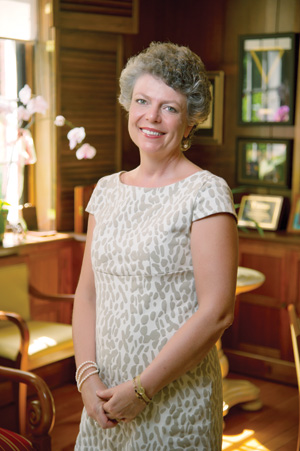
As a member of the National Science Board, I occasionally have the privilege of hearing firsthand accounts of recent scientific advances. And I am keenly aware of the responsibility that policymakers bear for fostering innovation—for creating the conditions where expertise and creativity meet to produce discoveries, new ideas and new products that improve everyone’s quality of life.
Often the best new ideas result when people with different backgrounds and specialized knowledge are thrown together in unexpected ways and places. A classic example is M.I.T.’s famed Building 20, a ramshackle World War II-era structure built to house scientists working to advance military efforts using radar. Over the decades disparate groups of electrical engineers, acoustic scientists, linguists, model train enthusiasts and many others occupied Building 20 and rubbed elbows with each other. The result was that Building 20 gave birth to innovation after innovation, including the linguistic theories of Noam Chomsky and the early concepts behind the Bose Corporation. Building 20 became known as the “magical incubator.”
Peabody College has its own unique history of fostering innovations in the realms of education and human development. This is due, at least in part, to the particular gathering of minds here with backgrounds not only in education but in psychology, especially emphasizing children, adolescents, families, organizations and communities. In the 1960s we saw this bear fruit in groundbreaking research in special education and in early childhood education. In the decades since, we have seen curricular innovations in areas like the undergraduate program in human and organizational development. We have also seen unique combinations of economists, organizational and finance experts, and education policy scholars produce high quality research on important issues like school choice and performance incentives for teachers.
In the last few years we have added faculty who bring with them strong backgrounds in neuroscience. Working in tandem with Vanderbilt scientists from other disciplines, we now offer the nation’s first doctoral program in educational neuroscience. We see similarly fruitful collaborations leading to advances in the study and treatment of autism.
Peabody’s alumni are innovators, as well, who combine knowledge with ingenuity and a commitment to helping others. Witness the project undertaken here in Nashville by Angela Harris, who is working to bring English language courses into the communities where they are most needed.
Peabody College and the wider Vanderbilt community are fortunate to have such talent, ambition and creativity. We look forward to more innovations in the years to come.
Camilla P. Benbow
Patricia and Rodes Hart Dean of Education and Human Development